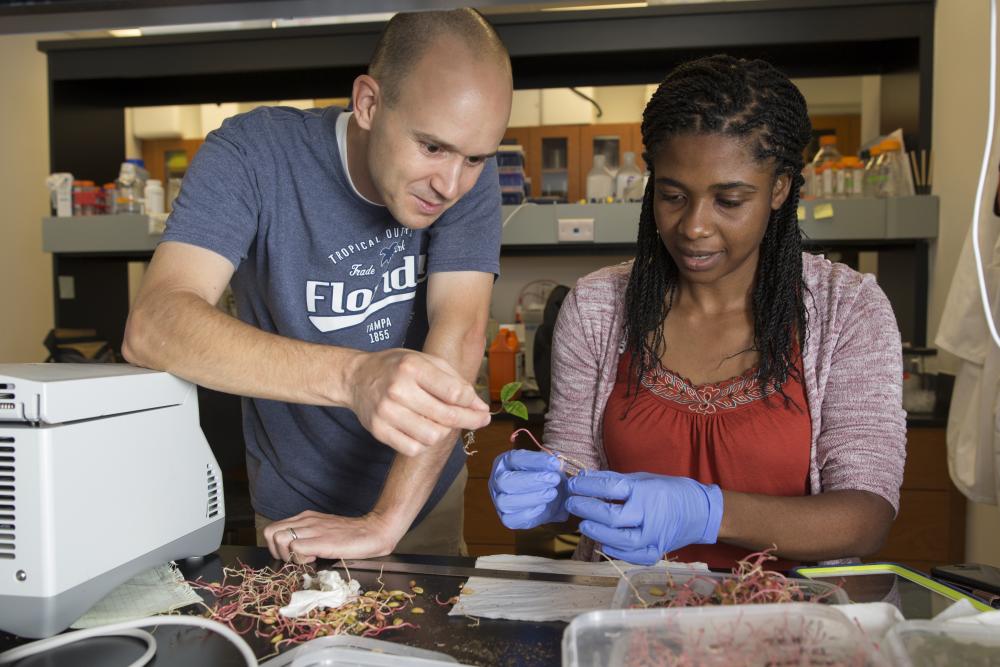3 min Read
University of Florida Assistant Professor of Tropical Fruit Genetics and Breeding, Dr. Alan Chambers, loves his work; and he hopes that consumers will likewise love the "fruits" of it. His program at the University of Florida IFAS conducts innovative research on many species, and is supported by public and private funding. Innovature recently interviewed Dr. Chambers in a rapid-fire Q&A to learn more about what it means to be a tropical fruit breeder.
How long have you been a plant breeder and how did you get into this field?
I started growing tomatoes and raspberries as a boy growing up in northern Virginia. I guess I've always been fascinated with plants. I've been with the University of Florida as a breeder for six years now. I got my start through connections I made as a graduate student. My first job was at PepsiCo working on the genetics of oat nutrition. I transitioned to tropical fruits because they are amazing crops.
What challenges are you working to address through your work?
At the end of the day, I want to improve access to nutritious, affordable, and abundant food irrespective of geography. I'm working to do this by breeding improving tropical fruit cultivars especially for vanilla and mango.
What's the most exciting thing about your job?
Discovery research, doing something never attempted before. This is both incredibly rewarding, and also incredibly challenging. The best part about my job is discovering something new. As plant breeders, that's what we're constantly striving to do.
What's the most interesting plant variety have you developed?
Vanilla is cultivated wild species. It has huge, raw genetic potential considering how wild clones have already captivated the world. We are excited about the performance of our first round of vanilla hybrids. We are looking for improved flavor and improved bean size. We believe this will help expand the vanilla market and bring greater returns to growers.
Are you using new breeding tools like gene editing?
Yes, we used gene editing to eliminate a susceptibility factor in papaya that could result in a non-transgenic, papaya ringspot virus-resistant cultivar. The virus is an industry killer. Currently, there is no naturally occurring genetic resistance to this terrible pathogen. Gene editing can produce a mutation that is similar to what occurs in nature all the time, but we are directing which genes are impacted. This can benefit the grower, the consumer, and the environment.
What's the most common question or misperception you hear about plant breeding?
That plants are naturally high yielding, nutritious, and affordable. Also, that safe, inexpensive, and abundant produce magically appears on grocery store shelves and bins.
When it comes to continuing innovations in plant breeding, what are you most excited about for the future? And what are the biggest hurdles?
Evolving genomics tools are allowing us to become more efficient and better at what we do. The biggest hurdles are research funding and attracting new talent to the plant breeding field.
Okay, we have to ask...given you're a fruit expert, what's your favorite?
My favorite fruit is a 'Coconut Creme' or 'Glenn' mango. I also like most temperate fruits, but it's hard to get something worth eating (sweet, aromatic, attractive) in our grocery stores.


